Filter by

Foreign in two homelands: racism, return migration, and Turkish-German history
Between 1961 and 1973 Turkish migrants were recruited as guest-workers in Germany, becoming West Germany's largest ethnic minority. This transnational history explores their experiences, emphasizing German racism and the estrangement faced by those who remigrated in the following decades, and reveals how many came to feel foreign in two homelands
- Edition
- -
- ISBN/ISSN
- 9781009486682
- Collation
- xvi, 358 pages; illustration
- Series Title
- Publications of the German Historical Institute
- Call Number
- 305.894 KAH f

Radically legal: Berlin constitutes the future
Right in the middle of the German constitution, a group of ordinary citizens discover a forgotten clause that allows them to reclaim their homes from multi-billion corporations. Kusiak argues that to save our cities from the housing crisis we need a revolution powered by the law. This title is also available as Open Access on Cambridge Core
- Edition
- -
- ISBN/ISSN
- 9781009516914
- Collation
- xii, 188 pages; illustration
- Series Title
- -
- Call Number
- 344.43 KUS r
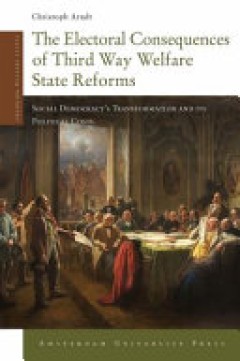
The Electoral Consequences of Third Way Welfare State Reforms : Social Democr…
In all advanced Western nations, policy-makers have implemented encompassing welfare state reforms in recent decades breaking with past welfare arrangements. In particular, social democracy engaged in significant policy change under the Third Way paradigm and broke with its traditional reputation on welfare that had built the ties with the core constituency in the 20th century. The Electoral Co…
- Edition
- -
- ISBN/ISSN
- 9789089644503
- Collation
- 280p
- Series Title
- Changing Welfare States
- Call Number
- 306.09409051 ARN
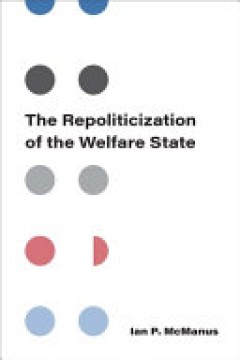
The Repoliticization of the Welfare State
The Repoliticization of the Welfare State grapples with the evolving nature of political conflict over social spending after the Great Recession. While the severity of the economic crisis encouraged strong social spending responses to protect millions of individuals, governments have faced growing pressure to reduce budgets and make deep cuts to the welfare state. Whereas conservative parties h…
- Edition
- 1
- ISBN/ISSN
- 9780472075324
- Collation
- 234p
- Series Title
- -
- Call Number
- 332.1094 MCM
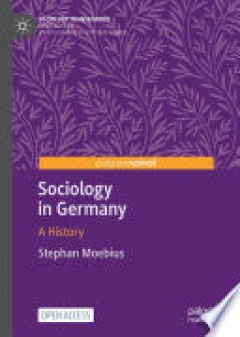
Sociology in Germany : a history
This open access book traces the development of sociology in Germany from the late 19th century to the present day, providing a concise overview of the main actors, institutional processes, theories, methods, topics and controversies. Throughout the book, the author relates the discipline’s history to its historical, economic, political and cultural contexts. The book begins with sociology in…
- Edition
- -
- ISBN/ISSN
- 9783030718664
- Collation
- -
- Series Title
- -
- Call Number
- 301.0943 MOE s
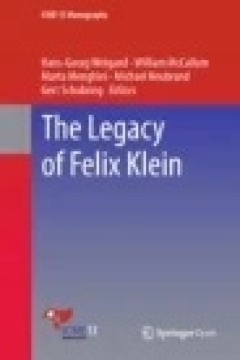
The Legacy of Felix Klein
This open access book provides an overview of Felix Klein’s ideas, highlighting developments in university teaching and school mathematics related to Klein’s thoughts, stemming from the last century. It discusses the meaning, importance and the legacy of Klein’s ideas today and in the future, within an international, global context. Presenting extended versions of the talks at the Themati…
- Edition
- -
- ISBN/ISSN
- 9783319993867
- Collation
- vi, 226p. : ill.
- Series Title
- -
- Call Number
- 510. 92 THE t
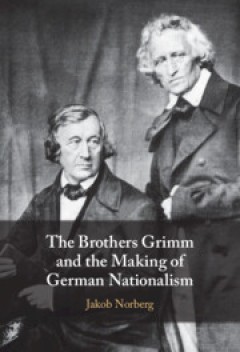
The Brothers Grimm and the Making of German Nationalism
In the first comprehensive English-language portrait of Jacob and Wilhelm Grimm as political thinkers and actors, Jakob Norberg reveals how history's two most famous folklorists envisioned the role of literary and linguistic scholars in defining national identity. Convinced of the political relevance of their folk tale collections and grammatical studies, the Brothers Grimm argued that they cou…
- Edition
- -
- ISBN/ISSN
- 9781009063890
- Collation
- viii, 268 p
- Series Title
- -
- Call Number
- 943.070922 BRO J
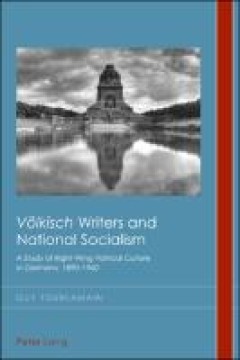
"Völkisch" Writers And National Socialism
This book provides a view of literary life under the Nazis, highlighting the ambiguities, rivalries and conflicts that determined the cultural climate of that period and beyond. Focusing on a group of writers – in particular, Hans Grimm, Erwin Guido Kolbenheyer, Wilhelm Schäfer, Emil Strauß, Börries Freiherr von Münchhausen and Rudolf Binding – it examines the continuities in völkisch-…
- Edition
- -
- ISBN/ISSN
- 9783039119585
- Collation
- Knowledge Unlatched (KU)
- Series Title
- -
- Call Number
- -
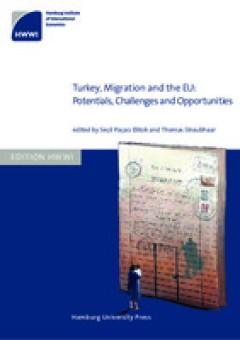
Turkey, Migration And The EU: Potentials, Challenges And Opportunities
In the context of Turkey's accession to the EU, the issue of potential migration from Turkey and its impact upon European labor markets became one of the concerns of the EU, considering Turkey's growing population and young labor force. In 2011, half a century after the bi-lateral agreement between Turkey and Germany on labor recruitment in 1961, migration plays a key role in relations of Turke…
- Edition
- -
- ISBN/ISSN
- -
- Collation
- -
- Series Title
- -
- Call Number
- -
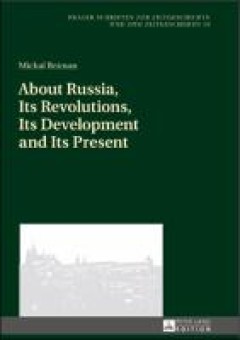
About Russia, Its Revolutions, Its Development And Its Present
The author analyzes modern Russian history from a new perspective. Due to the ideological heritage of the XIXth and XXth centuries, the social settings of the sociopolitical history of the USSR (1917–1945) have not been fully identified. Detailed examination of ideological and political concepts shows that the revolution of 1917 became not a middle class, proletarian movement, but rather a pl…
- Edition
- -
- ISBN/ISSN
- 9783653064735
- Collation
- Knowledge Unlatched (KU)
- Series Title
- -
- Call Number
- -
 Computer Science, Information & General Works
Computer Science, Information & General Works  Philosophy & Psychology
Philosophy & Psychology  Religion
Religion  Social Sciences
Social Sciences  Language
Language  Pure Science
Pure Science  Applied Sciences
Applied Sciences  Art & Recreation
Art & Recreation  Literature
Literature  History & Geography
History & Geography